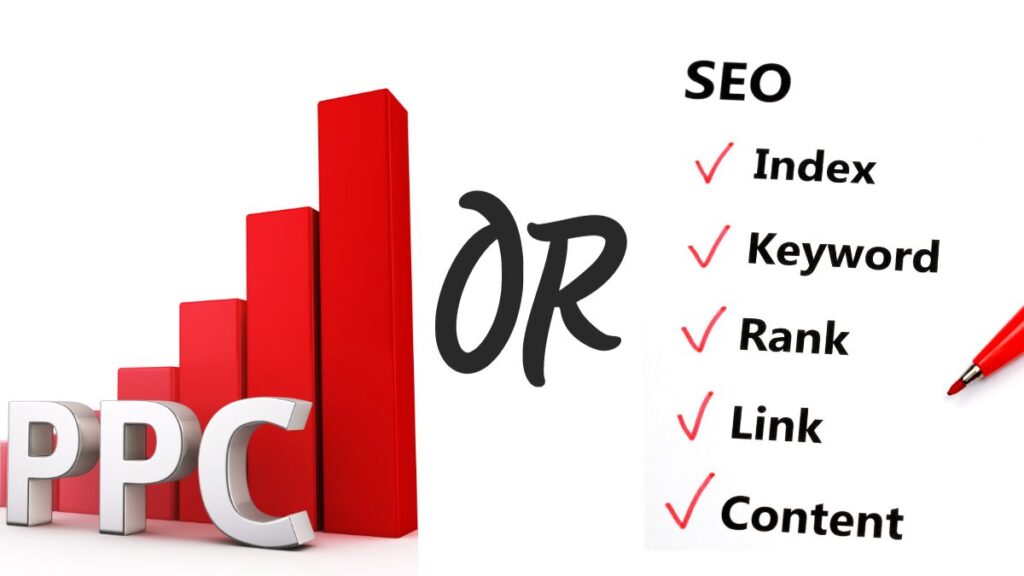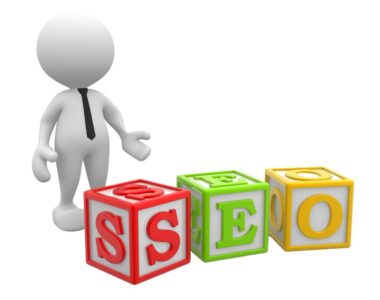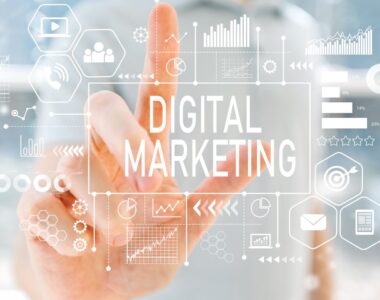Small businesses may struggle to navigate the world of digital marketing. When terms like search engine optimization (SEO) and pay-per-click (PPC) marketing are thrown around, how do you know what’s best for your company? This blog post will explain the essentials to help you decide whether SEO or PPC is better.
SEO: How to Get Free Traffic from Search Engines
SEO stands for search engine optimization. It means making your website better for people and search engines. When you do SEO, you want your website to appear on the first page of Google or Bing when someone searches for something related to your business.
For example, if you sell flowers, you want your website to appear when someone searches for “flower delivery” or “best florist near me.” This way, you can get more visitors who are interested in your products or services.
Factors of SEO
- Write good content that answers your customers’ questions and problems.
- Making your website fast, easy to use, and mobile-friendly
- Getting links from other websites that are relevant and trustworthy
Benefits of SEO
- You don’t have to pay for every click or visit. SEO is free, but it takes time and effort.
- You can get consistent and long-lasting traffic. SEO can help you build your brand and reputation online.
- You can reach a large and diverse audience. SEO can help you target different keywords, locations, devices, and languages.
Challenges of SEO
- It can take a long time to see results. SEO is not a quick fix. It requires patience and persistence.
- It can be affected by changes outside your control. Search engines can change their algorithms or rules at any time. Your competitors can also improve their SEO and outrank you.
- It can be hard to measure and prove your return on investment (ROI). SEO involves many factors and channels that can be difficult to track and attribute.
PPC: How to Pay for Targeted Traffic from Online Ads
PPC stands for pay-per-click. It means paying for online ads that appear on search engines, social media platforms, websites, apps, and other online places. When you do PPC, you want your ads to appear when someone is looking for something related to your business.
For example, if you sell flowers, you want your ads to appear when someone searches for “flower delivery” or “best florist near me” on Google or Facebook. This way, you can get more visitors who are ready to buy or take action.
Factors of PPC
- Creating and managing campaigns that target specific keywords, audiences, locations, devices, and other criteria
- Bidding on how much you will pay for each click or impression (how often your ad is shown).
- Optimizing your ad copy (the text of your ad), landing pages (the pages where your visitors land after clicking your ad), and conversion rates (how many visitors become customers or leads)
Benefits of PPC:
- You can get immediate and targeted traffic. PPC can help you reach people who are actively searching for or interested in your products or services.
- You can test and validate your ideas quickly and easily. PPC can help you experiment with different products, offers, messages, and strategies.
- You can measure and track your ROI precisely and accurately. PPC can help you monitor and analyze your performance and results.
Challenges of PPC:
- You have to pay for every click or impression. PPC can be expensive and competitive. You need a budget and a strategy to make it work.
- You have to manage and optimize your campaigns constantly. PPC can be challenging and time-consuming. You need skills and tools to make it work.
- You depend on your budget and ad quality. PPC ads can stop showing once you run out of money or if your ads perform poorly.
How to Choose Between SEO and PPC?
There is no one right answer to whether SEO or PPC is better for your small business. The best choice depends on your specific goals, budget, industry, audience, and situation. However, here are some general tips that can help you decide:
- PPC might be a better option if you need fast results or have a short-term goal.
- SEO might be better if you have a long-term vision or want to build a sustainable online presence.
- SEO might be a better option if you have a limited budget or want to control your spending.
- PPC might be a better option if you have a flexible budget or want to scale up your growth quickly.
- PPC might be a better option if you face high competition or have a niche market.
- SEO might be better if you have low competition or a broad market.
- PPC might be better if you target high-volume or high-intent keywords relevant to your business.
- SEO might be a better option if you target low-volume or long-tail keywords related to your topic.
- SEO might be a better option if you have high-quality, engaging content that provides value to your audience.
- PPC might be a better option if you have persuasive and compelling content that drives action from your audience.
Combining SEO and PPC: A Holistic Approach
You can also use SEO and PPC together in a balanced and integrated way to maximize your online exposure and conversions. For example, you can use PPC to test and validate your keywords, offers, and messages, and then use SEO to rank for those keywords and build your authority. Or you can use SEO to get organic traffic and brand awareness and then use PPC to retarget those visitors and convert them into customers.
Remember, it’s not always black and white. For some businesses, a blend of SEO and PPC works wonders. While you drive traffic with PPC ads, you can simultaneously work on building organic traffic. It’s like having both short-term gains and long-term investments.
Real-world Examples
Consider a local bakery. By creating content about unique pastries and optimizing it, they rank high organically for niche queries. At the same time, they run PPC advertisements for broader keywords, ensuring they capture potential customers from various angles.
On the other hand, a newly launched e-commerce site might invest heavily in PPC initially to drive immediate traffic while slowly building its SEO arsenal, creating content, and aiming to rank organically.
Conclusion
Both SEO and PPC come with their pros and cons. The key is to understand your business needs, resources, and objectives. In a digital world that’s constantly evolving, staying informed, adaptable, and open-minded can make all the difference. Whether you choose the organic path, the PPC route, or a mix of both, the digital landscape offers immense potential. It’s all about making the right choices at the right time.
Harness the power of search engine optimization (SEO) and pay-per-click marketing to reach your audience effectively. After all, in the vast ocean of the internet, ensuring potential customers find you is half the battle won.





